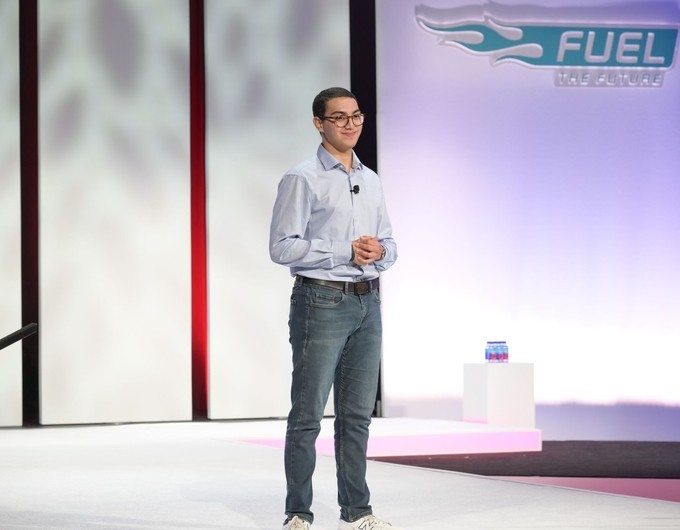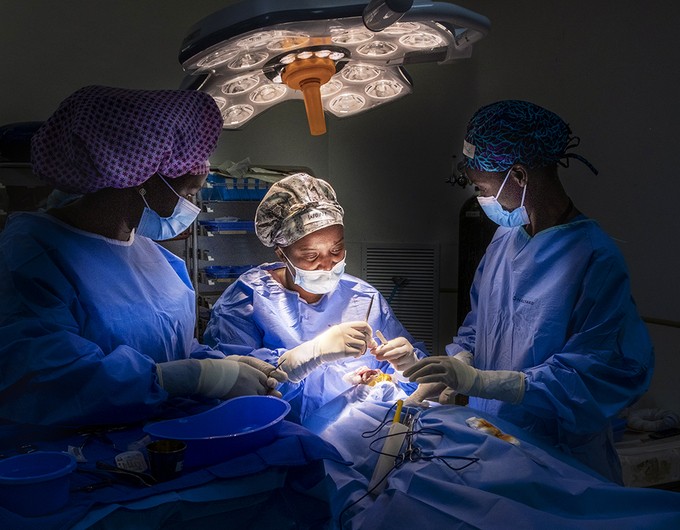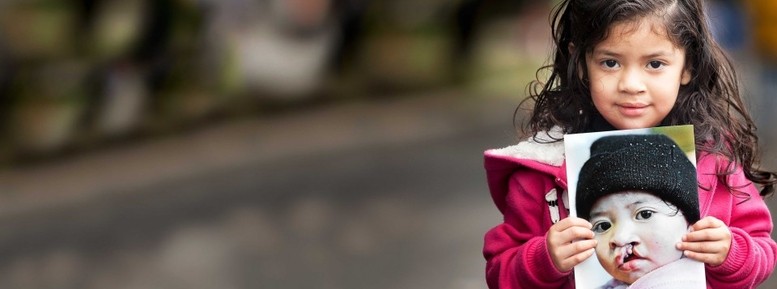Dr. Faustin Ntirenganya isn’t one to mince his words when it comes to surgical care in his homeland of Rwanda.
“Don’t fish for us, teach us how to fish — I like that approach,” said Faustin, head of the surgery department at the University of Rwanda. “I used to be involved in cleft surgeries and missions with people coming from abroad. The old way of doing business was to come, operate and go.
“Then I heard Operation Smile was looking at something more sustainable, which meant coming to train residents.”
Drawing on a history of medical missions and surgical programs in Rwanda dating back to 2010, Operation Smile revitalized its relationship with the University of Rwanda to begin hosting new surgical training rotations in October 2015. The rotations aim to close the daunting gaps in the nation’s health care system related to cleft care and plastic surgery.
Faustin is one of just two plastic surgeons serving Rwanda’s population of more than 11.9 million people. There are only 15 nurse anesthetists and anesthesiologists and 44 general surgeons. Most of these professionals are concentrated around Kigali, the capital city of this very densely populated nation. Though the most recent rotation concluded in March 2016, there is still much work to be done.
A volunteer surgeon with Operation Smile since 1998, Dr. Steve Naum of the U.S. has been a central figure in the development of the rotations since his first visit to Rwanda in 2010. Steve volunteered at Rwinkwavu District Hospital, where he recognized the opportunity for Operation Smile to support surgical training there.
The effort started with small teams of volunteers in anesthesia and nursing both at Rwinkwavu District Hospital and Butaro Hospital in Rwanda’s northern region before focusing on surgical training last year.
Faustin and Steve share the same outlook regarding the importance of conducting the surgical training rotations.
“It is easy for us to come to a place, do a number of cases, feel good about it and leave; but we don’t leave anything necessarily behind if we have not exchanged information or built some sort of knowledge or skill base for local surgeons to continue,” said Steve, who returns to Rwanda frequently to volunteer. “Ultimately, there is so much work and such a surgical burden in Africa that there is no way any volunteer service is going to get to all of it. The only way we are going to make a difference is to train people to continue doing that work.”
In addition to building surgical capacity for the future, Operation Smile volunteer plastic surgeon Dr. Bruce Ferris, who has been visiting Rwanda regularly since 2011, pointed to the benefit training rotations have on the safe surgical care patients receive.
“When I first started investigating doing rotations, it became very obvious to me that there were patients who needed surgical care that just weren’t getting it — languishing in hospitals for a very long time when they could have been cared for,” said Bruce, who practices in Wichita, Kan. “It made sense that if we could develop the rotations, many of these patients would be taken care of and not have to be hospitalized for the long term.”
The surgical residents involved in the 2015 rotation are a passionate crew, and among them is Dr. Christophe Mpirimbanyi, who was introduced to Operation Smile while working as a general practitioner and serving as an observer on a medical mission. Immediately, he was enthralled and inspired to become a plastic surgeon. Now in his third year of residency, his passion for positive surgical outcomes was almost palpable when he spoke of why this is more of a calling than a career.
“When you treat children with cleft lip, you don’t only treat them, but you also treat the community and even the family,” Christophe said. “There are children that have been abandoned or stigmatized, but when you treat them, you give them hope.”
The success surgical training led to the inclusion of anesthesiologists at the March 2016 mission at Rwinkwavu District Hospital.
The training of anesthesiologists in Rwanda is led by Dr. Paulin Banguti, who completed much of his medical training in the Democratic Republic of Congo before returning to Rwanda in 2004 with a desire to make an impact on the nation’s health care system. With only 15 active nurse anesthetists and anesthesiologists in the entire country, the workload is immense.
“If we can train 60 active anesthesiologists by 2024, we’ll see if we can get to 100 or 120 anesthesiologists by 2030 — then we will be closer to the goal,” Paulin said.
The path to success looks to be long and challenging, but ultimately the goal remains the same: a time when Rwanda produces enough doctors to meet their nation’s surgical needs. The residents’ enthusiasm following the 2015 training rotation embodies this hope for a healthier future.
“In October, we sent three of our third-year residents. They came back saying, ‘Why did we wait so long before starting something like this?’” Faustin said. “They really benefited from this experience and the tremendous surgeons.”
Latest Stories

A Former Patient, Aymane Now Shares His Story

What is Operation Smile's Nutrition Program?

